#but now she's tatar
Explore tagged Tumblr posts
Text

fuck it. tatar miku
#hatsune miku#my art#art#illustration#digital art#drawing#artists on tumblr#digital artist#miku hatsune#miku fanart#brazilian miku#but now she's tatar#idk
2K notes
·
View notes
Text
Ah yes, Magnificent Century, or as I like to call it – “Why the fuck are the most likely Ukrainian girl and the Crimean Tatar woman speaking Russian to each other, what were the writers smoking???”
#BEFORE ANYBODY COMES AT ME#DO NOT use this post to debate hürrem’s nationality. please#most people agree she was from an area which is modern day ukraine. can we please leave it at that#also yes they were speaking Russian in that scene. not Ukrainian like I’ve seen some people say#trust me I know and can tell the difference between the two. it’s Russian#okay? okay#now that that’s out of the way#what is this. the 1500s or the Soviet Union??#for the record at this point in the show timeline there’s still another 32 years until Ivan the terrible conquers Kazan#a.k.a the Tatar capital#and ukraine was not a part of Russia at that point either#though I cannot tell you exactly who it belonged to bc I erased most of what I learned in history after my exam#but the point is#there is a very. very small chance that both of the would have known Russian#especially fluently#I feel like I’m swinging at a wasp’s nest by making this post so again#please don’t start any discourse#I am just trying to make a joke about the Taylan brothers failing both history and geography#alright?#okay good#Nia rewatches MC#magnificent century#muhteşem yüzyıl#hürrem sultan#valide sultan
5 notes
·
View notes
Text

surreal shit to hear when for most of the week you've been constantly mourning the death of your father figure in the art field
#yesterday thought how in my last year of education we had contradictions bc i was way older & independent than before#and still he helped me with illustrations for one book & it was the 1st one that got published & had my illustrations n layout#i dont remember if i showed printed ver to him back then#if some1 will read this: everything is ok. not the 1st death & im philosophical bout death by now#tw death#aigel's part is in tatar & i can understand only few lines she sings in rus but i need to cut it & listen on repeat#im lying. i cant believe he's dead (its always like this) if not him im not sure you'd see my art here#“girl it's time you wised up”
5 notes
·
View notes
Text

Confession:
"Remy hasn't learned anything from her past. Right now, she's still being racist on her channel. She lets her mods and fans talk bad about Black people and even finds their racist jokes funny. Now she says she's a Tatar so she doesn't know when she's being racist. Girl, you need help."
48 notes
·
View notes
Text
that's all for this contest, thank you to everyone who participated. Now time to vote

@legendarymapmaker has Agent 4, having been fuzzifyed by grizz, as the final boss of Alterna,

@danndeemo puts 4 against 3 when they were hijacked by tatar though 4 seems a bit distracted....

@dinomite2 has 4 acting in place of Neo 3, guess the NSS couldn't find another kid..

@galax-dragon has Gloves and Hachi from the comics facing off against sanitized googles and rider

@princelydelinquents has 8 meeting and facing off against 4 who doesn't seem to be taking this seriously

@bagel-n-bagel has 4 in Altrena, splatting fuzzy octos, hitting targets and dealing with deep cut under the watch of ORCA's cameras

@agentadhdr1zzlander has 4 having none of the order sectors shit when in place of 8

@doughnut-anon made 4 as the captain (where they should be)

"a voice familiar yet forgotten you emanate a certain feeling inside of me whether it be hatred or love I may not know"
@sodapoppss has 4 after one of the deep sea metros tests, with a familiar face she can't quite put her finger on in her hands

@just-a-lesbian-human has 4 offering aid to 8 in the order sector

@transboytism has a familiar face in place of agent 3..
DUE TO AN ERROR ON MY PART PLEASE COMMENT SOMETHING IF YOU VOTE FOR TRANSBOYTISM
#agent 4#splatoon#agent 12#splatoon 2#art contest#side order splatoon#agent 8#agent 3#agent 32#agent 4 in other campaigns contest#octo expansion
49 notes
·
View notes
Text
MEDIA MANAGEMENT — JACK HUGHES (PART FOUR)
one — two — three — four
notes: i got a couple of these pictures from @/sholden43 on twitter! so creds to her for pics 2 & 5!!
y/ndevils00









liked by njdevils, john.marino97, and 31,697 others
y/ndevils00 hello and welcome back to y/n’s post-game web show!
i’m so happy to announce that njdevils clinched!! LET’S GO, BABY!!
to get us on the scoreboard, we had a goal by the amazing, the talented, the ‘leaves his socks on the bathroom floor’, LIL JIZZY!!! now, i’m not one to brag, but THAT’S THE GUY WHO HOGS MY BLANKETS AND I AM SO PROUD! we also have a picture of him side-eyeing me at the bench and then looking directly at me. that’s the face of love, people!
but before that goal could take place, maraschino cherry got put in timeout. BOO!! but don’t worry guys, he was given a stern talking to during intermission! he told me he’s gonna be a good boy now!
immediately after marinara’s sin bin placement, my favorite dilh was the victim of a giant toddler attack 😡 but rest assured, bradytkachuk was put in the naughty boy box as well! which is what led to my spectacular boyfie’s goal!
not long after that goal, woodchuck had a fight with said giant toddler… he did not win.
then, my bestest friend, brattman scored the third goal of the night! i rewarded him with the biggest and bestest hug i had to offer during 2nd intermission!
following that, dawson’s creek hit ‘em with a one timer that knocked their pads off! he was rewarded with a pat on the head! i, however, did not get a picture of him because he was hiding from my camera… he’s spending too much time with jackson.
in the final period, ham sammich taught the senators how to dougie! LET’S GO! happy for you douglas!
and to close the game, we had an empty net goal by my father that is not my father; TATAR SAUCE!
overall, i am so proud of the effort put forth from my team that i put together myself and pay out of pocket to entertain me! let’s go to the playoffs boys!
tagged: jackhughes, john.marino97, sharangovich17, miles.wood44, jesperbratt, dougieham, tomastatar90, and njdevils
jackhughes i appreciate the sentiments, but did you really have to call me out like that?
y/ndevils00 it’s for the plot babe!
jackhughes i’m 99% sure that’s not what that means
y/ndevils00 and i’m 100% sure that you’re a loser
trevorzegras stop flirting it’s gross
y/ndevils00 @/trevorzegras ariana, what are you doing here?!
jackhughes that’s actually the look of someone who did not like when you started cheering “go lil jizzy, get a hat trick you coward!”
y/ndevils00 it’s called tough love
jackhughes i think i prefer the love you give me at home
y/ndevils00 noted. can’t promise your suggestion will be put to use
john.marino97 once again, y/n’s “talking to” was not actually a talking to. she hit me in the head with a rolled up newspaper, that i still don’t know where she got, and told me to “pull myself together”
y/ndevils00 well when you put it like that, you make me sound like a bad friend
john.marino97 you’re the worst
y/ndevils00 that’s not what you said last week when i brought you dunkin
miles.wood44 i mean, i thought i won that fight
y/ndevils00 …stick to your crypto
miles.wood44 ouch y/n/n
y/ndevils00 i keep it real on my page, if you can’t handle the heat, block me
y/ndevils00 wait don’t actually! i’m sensitive
dawson1417 she really did pat me on the head. like a dog.
y/ndevils00 cause you got the dog in ya!
dawson1417 you concern me
y/ndevils00 i’d be worried if i didn’t
tomastatar90 my daughter that is not my daughter!
y/ndevils00 take notes boys, this is someone who accepts me for me!
jesperbratt i got a better hug than hughesy
y/ndevils00 hell yeah, you did!
jackhughes that’s cause i get something better
y/ndevils00 @/jackhughes jackson!
jackhughes @/y/ndevils00 still not my name
dougieham thank you! but why the full first name?
y/ndevils00 because it’s your name. is it not?
dougieham it is?
y/ndevils00 i rest my case
trevorzegras hughesy is a beast
y/ndevils00 does that make me beauty?
trevorzegras i’m not sure how to answer this without upsetting you
y/ndevils00 @/jackhughes i hate to tell you this, but you need to find a new best friend. your current one is mean. may i suggest @/jamie.drysdale ? still a duck, just a nicer one
jamie.drysdale did i just get a y/n notice?
trevorzegras stay away from jimbo, you witch!
#media management series <3#jack hughes#jack hughes x reader#jack hughes blurb#jack hughes imagine#jack hughes fic#trevor zegras#john marino#dawson mercer#dougie hamilton#tomas tatar#jesper bratt#miles wood#nj devils#new jersey devils#faithlynn’s insta edits <3#faithlynn’s friends: writing!
606 notes
·
View notes
Note
Hi. Not sure if you've answered this before, but do you have a list of books to recommend on fairytale/mythic analysis?
So I finally have a real response to this question, but it's LONG, be warned:
First, it depends what you want to get out of your folklore study, what lens you'd like to use for analysis. And second, it's important to know that the practice of folktale analysis has changed over time, especially in the last ~15 years or so as the scholarly consensus has evolved toward decolonization.
For example, the common historical starting place was Bruno Bettleheim's The Uses of Enchantment. Candidly, I haven't read it yet for a few reasons: 1) It focuses fairly exclusively on Western European fairy tales like those of Grimm, Basile, and Perrault. 2) It assumes the primary audience for such tales are children. 3) It's a white man's perspective, and there are already enough of those to go around. That said, it's considered a foundational text for folklore study, so I'll probably get to it eventually. There are some modern authors who might be considered scholarly successors of Bettleheim, like Maria Tatar. I haven't read her books yet but I know she's also a powerhouse of Western fairy tale analysis.
Some other popular perspectives include the works of Carl Jung and his protégés in psychoanalysis, Marie-Louise von Franz and Erich Neumann. These are wonderful sources for learning about depth psychology and the universal unconscious which causes certain motifs to recur in storytelling across the globe and over centuries. Another popular author in this field is Robert Bly, who dove deeply into the concept of the Shadow as it appears in folk tales.
But for me, my favorite sources have been a collection of feminist authors who were active in the late 80s and early 90s, notably Barbara Fass Leavy and the incomparable Clarissa Pinkola Estes. While their work is pretty firmly grounded in second-wave feminism and therefore not very intersectional as we understand it today, they were the first to begin exploring interpretations of folk tales outside of a patriarchal context. I personally refer to Leavy's In Search of the Swan Maiden and Estes' Women Who Run With the Wolves more than any other books.
A lot of the most current perspectives are only accessible via blogs, like Jeana Jorgensen AKA The Foxy Folklorist, who often explores fairy tales through a Queer lens. Another brilliant voice working today is Helen Nde of Mythological Africans, who is doing the long-overdue work of decolonizing African folklore.
And while all these sources will help you develop a framework for analysis, still one of the best things you can do is read the tales for yourself. One of my favorite series is that of Heidi Anne Heiner of Sur La Lune Fairy Tales, who has amassed impressive collections of folk tales of the same type from around the world, making comparison easy. She also provides excellent footnotes that offer context to the versions and translations she's selected, and every tale has a source.
Outside of that, I like to read regional collections from indigenous scholars and native speakers: some editors will even include a copy in the original language along with the English translation, thus allowing others to "check their work." One of my favorite folkorists like this is Inea Bushnaq, who collects Arab folktales and again provides accessible cultural context. It's important to remember that most oral folktales which are now available in English were first recorded by colonizers, so the versions we have may be edited, mistranslated, or even maliciously altered to suit Western tastes. This is why seeking out versions from actual members of indigenous communities is critical.
Right now, I'm reading The Japanese Psyche: Major Motifs in the Fairy Tales of Japan by Hayao Kawai, and I'm next going to try Oral World and Written Word by Susan Niditch. I tend to just go where the spirit moves me, journal a bit, go down a research rabbit hole about a particular topic... it's fun. But whatever you're looking to get out of your folk tale study, rest assured you will never run out of material!
#folklore#folk tales#fairy tales#mythology#bruno bettleheim#maria tatar#carl jung#marie louise von franz#erich neumann#robert bly#clarissa pinkola estes#barbara fass leavy#jeana jorgensen#foxy folklorist#helen nde#mythological africans#african folklore#inea bushnaq#arab folklore#japanese folklore#depth psychology#comparative mythology#jungian shadow#jungian psychology#sur la lune fairy tales#heidi anne heiner#brothers grimm#charles perrault#giambattista basile#asks
20 notes
·
View notes
Text


Second batch of my lil guys and it's our beloved finalists... Knife and Suitcase !!!

THE ONE AND ONLY ... MY BBG KNIFE ... He was the first and only hum that i like to this day and the character and all and AHHH KNIFE KNIFEE!!!! First a bully, now a boomer with lame sense of fashion and bandaged throat ... I wouldn't recommend befriend him in 1 season if you a fragile emotional thing or he's going to gaslight you and make you responsible for his life and will threaten to kill himself at any moment given. Its just funny! In fact, he even cuts himself because it's funny and there's nothing else to do. On the other hand, he understood how much of a dumbass he was and became better. One thing remains the same - his love for hip-hop and particularly Eminem. Yeah. My best headcanon ever.

Ok so these all stories were made before the their all fake facts so just read it as theyre real people ok. Her family is literally half Crimean Tatar half Qazaq. The latter side moved to Ukrainian Crimea and found love there so there's Suitcase. Then in 2014 when the island was occupied they found a way to move out and atleast her parents and her live in US ever since. They were very low on income since they've abandoned their lives so she was finding some sort of job or opportunity - that's when II season 2 flashed before her eyes! She thought it was a great opportunity since they also give you free place to stay while you're competing.
#artists on tumblr#gijinka#humanization#inanimate insanity#inanimate insanity fanart#ii knife#ii suitcase#ii fanart#osc#object show
23 notes
·
View notes
Text
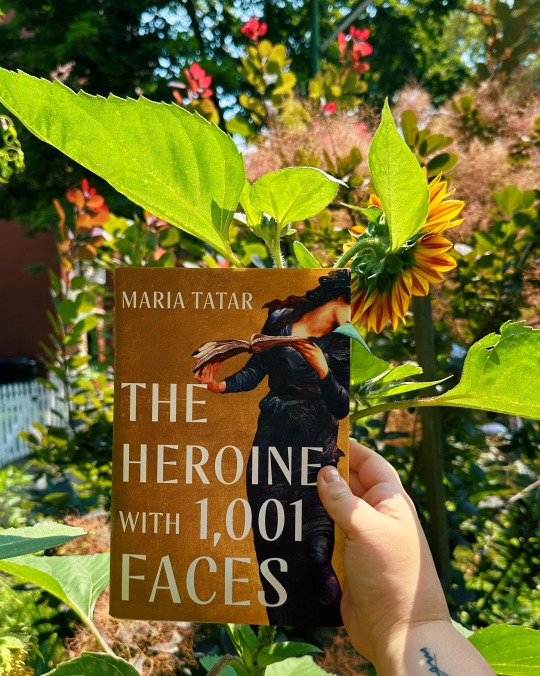
The Heroine with 1,001 Faces by Maria Tatar is a powerful book of literary analysis seeking to do for heroines what Joseph Campbell famously did with "the hero's journey" (in which he dismissed female characters as having much purpose at all).
I really enjoyed most of the literary analysis in this book! I particularly loved the monomyth of woman as weaver/truth-teller/spider/spinner. Charlotte and her web, Arachne punished by Athena, Philomena exposing her assault through tapestry. Women and girls are silenced, limited in their creativity, but they use it. Women use their supposed invisibility to find ways around silencing. Telling truth, exposing story, seemed to be women's fundamental purpose in myth and folklore, broadcasting injury and harm to change the world or impose justice, even when their good work is then punished.
Increasingly over the years, the stories that women used to pass on knowledge became vilified in our culture, dismissed as 'old wives' tales' as women became gossipers, storytellers but of stories with little to no value. Yet even as this disdain for women's speech grew, women authors wrote characters who used their curiosity, nosy-ness, gossip, to succeed. And then they wrote heroines who learned to fly under the radar to investigate and expose the truth, from Nancy Drew to Marple to Katniss Everdeen.
So much of the analysis by Tatar was fascinating and brilliant. I did sometimes struggle with the writing however. In academic fashion, she brings in many examples where she'll analyze without a concluding statement or point. Sometimes I was desperate for a sentence at the end of an analysis or even a chapter that summed up a bit, connected it back to the larger thesis. I could have used a more conclusive tone, in other words, throughout a lot of the book, to keep me as a reader on track with the heroine's journey she was showing us.
Still, I loved a lot of this, and will take a ton of it with me moving forward as a reader and writer. I especially loved her point that myth is still evolving, that the women retelling old fairytales and myths right now are doing the work that was always needed, because those stories were never meant to be written, cemented fixtures, but ever-changing stories that shift to fit their times and listeners. Altogether, an interesting if sometimes difficult read.
#the heroine with 1#book nerd#book review#literary criticism#heroine's journey#maria tatar#my book reviews
52 notes
·
View notes
Text


Ok, does she support the genocidal war against Ukraine or not? If not, what did she, as a russian woman do for Ukrainians? Is she talking about war? Is she spreading information about the crimes of the russians? Does she help Ukrainian army or Ukrainian refugees? What does she know about occupation of Crimea? What does she know about the repression of Crimean Tatars in Crimea after 2014? Does she agree with the fact that russia is an imperial country that must go through the path of decolonization, otherwise nothing will change?
It was really funny for me to read people's comments about: "this is not about politics", she is an innocent girl (yes, she worked in russia), Ukrainians are so angry, now I support russia. It's like we haven't been through this before. As the second president of Ukraine Leonid Kuchma said: Це ж було вже.
I'm not surprised at all, because some people in the art society or any fandom only care about fictional characters. They love russians madly and do not care about any of their crimes. These people know nothing about Ukraine or other countries that have faced russian aggression and know well what russians really are.
There are so many levels. Thanks to this person for explaining everything so well.


#I'm sorry that I don't want to see Lera at the same moment when a russian drone flies over my house.#ukraine#one piece#russia is a terrorist state#lera abova#miss all sunday#netflix#russian culture#russia#niko robin#russia ukraine war
27 notes
·
View notes
Text
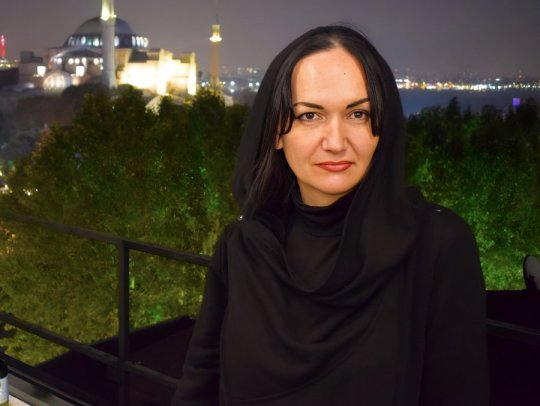
(story taken and machine-translated from the official twitter account of the Mission of the President of Ukraine in the Autonomous Republic of Crimea)
Today's story is about a woman who was detained by the occupiers in the spring of 2022 and illegally sentenced to almost 7 years in prison. Iryna Danylovych is a nurse and citizen journalist.
She was threatened, blackmailed and forced to confess to things she did not do. Now Irina is in a Russian colony, her health is deteriorating due to the lack of quality and timely medical care.
Iryna Danylovych worked as a nurse at the Malachite rehabilitation center in Koktebel, maintained a social media page and several blog columns on the rights of healthcare workers and healthcare issues in the occupied Crimea.
The occupation forces abducted Iryna Danylovych in April 2022. She was returning from a night shift at the hospital when the occupiers searched her house and seized all her appliances, several books and documents.
There was no contact with Irina for more than a week. She was illegally detained by the FSB: she was subjected to psychological pressure, beaten, threatened with death, interrogated on a polygraph, threatened to be "taken to the forest" (ed. - meaning killed and buried in the forest) or "to Mariupol" (once again, killed), fed once a day, and not allowed to go to the restroom.
Eventually, the occupiers informed her relatives that a decision had been made to place her under "administrative arrest", allegedly because "she had transferred unclassified materials to another country". Later, they fabricated a "case" against Irina accusing her of "illegal actions with explosives."
The "proof" was the "discovery" of 200 grams of explosives in Irina's bag. And only on May 11, the lawyer managed to establish that she was in the occupation pre-trial detention center in Simferopol.
The "arrest warrant" was issued by the occupation "court" during a closed court session - without the participation of listeners, journalists, or Irina's relatives.
But the real reason for the detention is different. For covering the problems of the healthcare system, the crimes of the occupiers, as well as for protecting and promoting the rights of healthcare workers in the occupied Crimea.
Iryna was one of the first correspondents of the Crimean Process; she supported Crimean Tatar activists in the "courts"; prepared materials for the editorial office of Inzhyr Media; supported medical activists, recorded violations of rights under occupation.
According to Irina, she was kidnapped, taken to Simferopol and illegally detained in a basement, tortured and starved, and forced to sign a confession under threat of death, having been viciously planted with explosives after the "confession" had been forcibly extracted.
Complete hearing loss in the left ear, deprivation of necessary medications, suffering from headaches and earaches. This is what Iryna is going through now.
Irina was transferred to the Krasnodar Women's Correctional Colony No. 7 in Zelenokumsk. Every day, Irina's health condition deteriorated: in the occupation prisons, she gradually lost hearing in her left ear, developed otitis media, constant headaches and dizziness.
Back in July 2022, the political prisoner reported being beaten by an FSB convoy and psychological pressure exerted on her by Russian security forces. The occupiers also took away the opportunity to read, not returning the collection of poems.
To get medical help, she went on a hunger strike, but stopped it after 10 days, believing the promises of the SIZO administration, but no one has treated her and is not going to, watching the prisoner's health deteriorate.
According to her father, the colony allocates 90 minutes for the distribution of medicines twice a week: on Tuesday and Thursday. During this time, only 20-30 people out of a queue of several hundred prisoners manage to receive them.
"There are periodic fights among the patients for the opportunity to be in the front of the line and receive medicines. Iryna does not participate in this and has been deprived of access to the medicines prescribed by doctors, which we regularly send in parcels, for several months now," her father said.
Despite the illegal actions, torture and pressure, the occupiers failed to break the Ukrainian journalist, she continues to support Ukraine and believe that she will soon return home. "Only in such a strong Ukraine could such a strong you be born," said Iryna's father Bronislav.
Even behind bars, Iryna Danylovych continues to resist the occupiers and support Ukraine. The song "I am free!" performed by her is a symbol of disobedience and struggle, which the occupiers do not like, and the tattoo on her body that reads "Freedom is our religion" is her life's credo.
#human rights#ukraine#russia#journalist#crimea#war in ukraine#you know a woman being kidnapped and tortured as a punishment for speaking up about issues in the healthcare system#sounds like exactly something western leftists would be supporsed to care about#but alas our agressor is russia and they are allowed to do that because dostaevsky and chaikovsky#and one can't twist this story to somehow make it about usa#very sad
63 notes
·
View notes
Text

Idk if it was ever said, but I have a little headcanon/theory that Masha is Russian
Basically, the only thing It's based on is their name, bc Masha (Maria) is a Russian name, yeah, but I like this idea, bc there actually not so many Russian characters in media, and most of them are too stereotypical, so having a non-blonde Russian character is a super rare thing (Ik only Fyodor and Red Star who aren't blonde, so) that I want to have.
She also kinda looks asian, so I think she could be mixed. Since there are many nationalities in Russia, I would guess one of her parents is Slavic and the other one is Tatar
Also I think it makes sense for Eda, Lilith and Kikimora to be slavic, since they're based on Slavic culture characters (Baba Yaga, probably Kashchei the Immortal (she could also be based on Lilith from Jewish culture, but we'll take the slavic part now, bc of Eda, Kiki and some other references) and Kikimora). Name "Eda" exists in many cultures, including such slavic cultures as Russian, Ukrainian and Croatian, so Eda could be either
While name Lilith doesn't exist in slavic countries. It's related to Jewish mythology, but also is Armenien name. Armenia isn't slavic tho, but it was a part of the USSR and partly a part of Russian Empire, but even so the cultures are completely different and Armenia doesn't include slavic mythology anyways, so there is definitely a cunfusion, since we can see that Dana took different things from different cultures for the same family. And mixing different cultures right (if doing it at all) is super hard. So, Lilith was most likely based on a Jewish demon, but plays a role of Kashchei the Immortal, who was Baba Yaga's "evil brother". It's also interesting how Lilith is the only known Clawthorne female family member whose name doesn't end with "lyn" (Edalyn, Gwendolyn, Evelyn). So I could make a crazy theory that Lilith and Eda are half sisters and Gwen is only Eda's biolgical mother, while Lilith has a different biolgical mother who is Jewish (and may be Dell is Jewish too??). It kinda also explains why Lilith and Gwen's hair are so different and why Gwen didn't pay enought attention to Lilith (besides Eda having a curse), which is actually really sad...
Yeah, I know It's just random thoughts/theories and probably have nothing to do with canon, but now this idea seems even more interesting to me. Even tho I didn't plan any of these and just wanted to share my hc about Masha's nationality...
Anyways, have a good day!
#Toh#The owl house#Toh theories#Clawthorne family#Eda#Lilith#gwendolyn#dell clawthorne#Masha#evelyn clawthorne
23 notes
·
View notes
Text
Doll profiles for my modern dolls! Since my collection has changed much over the past few months. Under the cut because this will be long!
Most of my modern dolls aren't canon character dolls, and any who are (namely Corinne) are still a little bit divorced from their canon counterparts, because I have fun with extrapolating storylines for my own dolls, and trying to make them fit in alongside their new friends. On to the bios!

Lena Grzegorczyk (she/her)
Lena is the oldest doll in my collection, and therefore I think it's apt that she is my oldest character. She's 14, and enjoys learning new things. She loves to read and draw, and she just got a guitar for Christmas! She is also obsessed with vintage fashion. Her dream job is to work with textiles someday, in any capacity. Lena's favorite color is red!
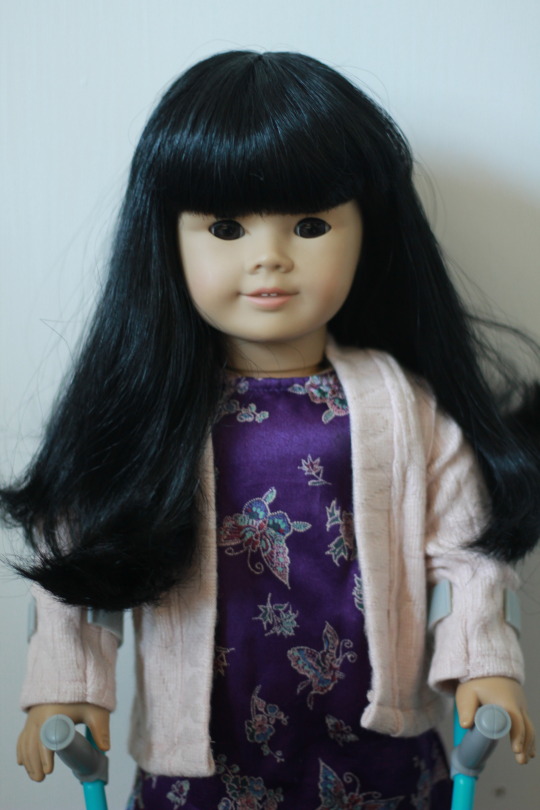
Tsukiko Matsubara (she/her)
Tsukiko is happy, confident 13 year old! She loves experimenting and trying new things, and her favorite thing she owns is her little science kit. She's fascinated by chemistry, and would love to do something with that someday! For now, she spends her time messing with her camera, and doing fun (safe) experiments in her kitchen. Tsukiko has Ehlers-Danlos syndrome, which often has her using hand-crutches. Her favorite color is turquoise!
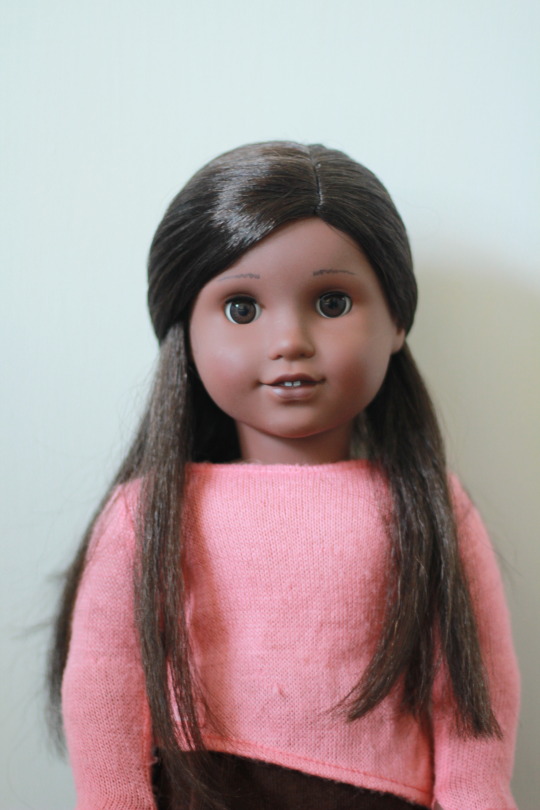
Divya Patel (she/her)
Divya is a sweet, caring 12 year old. She is on the local youth's swim team, and she enjoys painting and sewing, and her favorite class at school is art class! She had a blast with the pottery unit. She's not quite sure what she wants to do someday, but she has plenty of time to decide! Divya is half Gujarati, and half Afro-Brazilian. She's good friends with both Tsukiko, her classmate, and Lena, who she met at an after-school art club last year. Her favorite color is light pink!
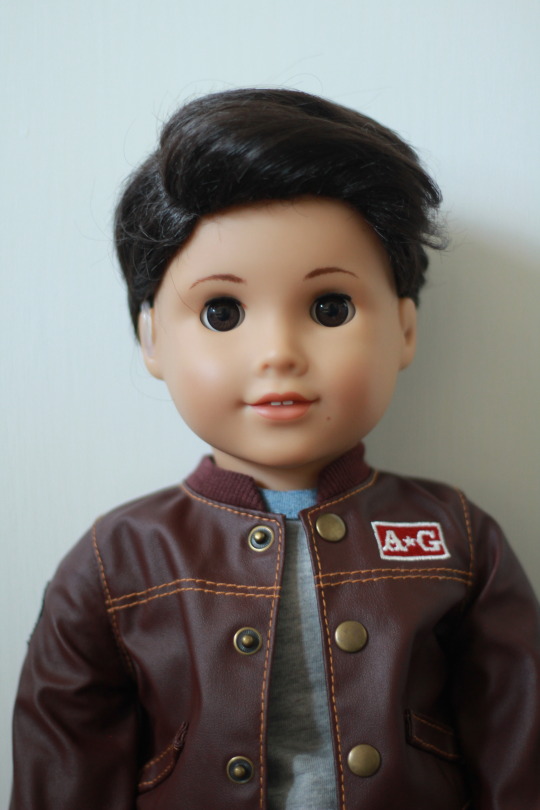
Andrés Fuentes (he/him)
Andrés is really excited that he made it onto the boy's soccer team. He just came out as trans, and was worried that he wouldn't be allowed to participate. Andrés just turned 13, and in his spare time he loves to play the drums, which annoys his family to no end. He does brilliantly in maths, which makes him think he might be suited to something like accounting, but he hasn't thought too much on the subject. His family is Puerto-Rican, and he speaks Spanish at home. He was also born hard-of-hearing in his right ear, and he's working towards becoming fluent in ASL. His favorite color is green.

Nihkko Lehtinen (he/him)
Nihkko just transferred to this school district this year, and he has found a good friend in Andrés on the soccer team. He's 12 years old, and outside of playing soccer, he's looking forward to this year's school production, which he wants to audition for. He loves to sing and dance, and wants to put those skills to use! His family is Saami and Tatar, which makes him really proud! His favorite color is yellow!

Esme Adrianov (she/they)
Esme is a quiet, stubborn 12 year old. She doesn't move outside of her social circle much, but she deeply values the friends that she does have. Despite being rather shy, she isn't afraid to stand up for her and her friends when needed. They enjoy running on the track team, and they love baking and experimenting with fun, new recipes! Her family is Unangan, and her parents raised her to be really, really proud of that fact. She is good friends with Nihkko, Andrés, and Nanea. Their favorite color is blue!

Nanea Jeon (she/her)
Nanea is a sweet, confident 12 year old! She loves biking around town with Esme, and working in the gardens with her parents on the weekend. She loves to write as well, and she's written a few short stories that she is extremely proud of! Nanea is half Hawaiian and half Korean, and she greatly looks forward to when she can see her cousins, who all live so far away! Her favorite color is light orange!
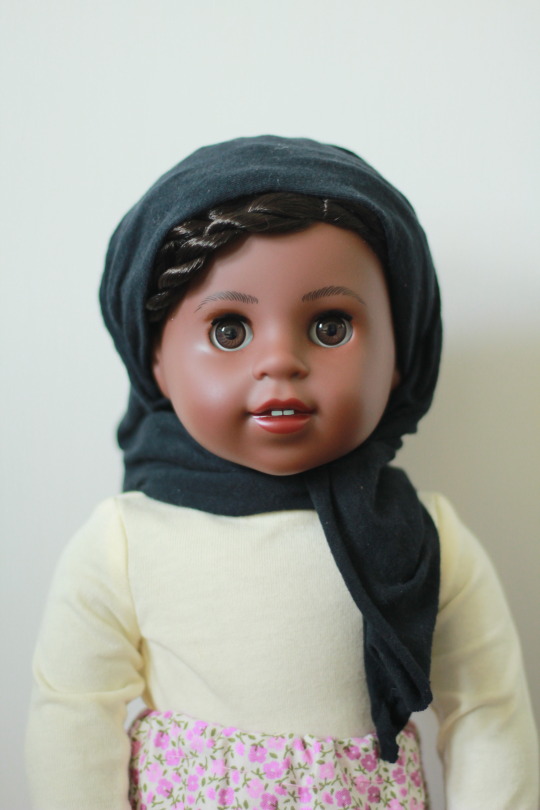
Amarah Adeyemi (she/her)
Amarah is a friendly, confident 12 year old! She draws a lot in her spare time, and enjoys creating new clothing designs in her sketchbook- it's her dream someday to have her own clothing line! Otherwise, she enjoys maths and history, and she loves hanging out with her friends after school at the park. She's Nigerian, and her family moved to the US when she was young. She grew up speaking Yoruba, along with English, at home. She's close with Corinne, who she met in 3rd grade. Her favorite color is purple!

Corinne Ziyì (子义) Tan (she/her)
Corinne is a kind and resilient 12 year old. In her free time she enjoys winter sports such as skiing and ice skating. After school she enjoys helping around her mother's restaurant or going to the park with Amarah. Her favorite subject is history- she finds it interesting and engaging. She thinks she'd like to go on someday to further her studies in the humanities- her name, Ziyì, means someone who will stand with righteousness, and she feels that it fits her and her goals very well! But all that is a long way off. For now she's happy to spend her time as she does. Her favorite color is mint!

Eloise Gruenberg (she/her)
Eloise is an introverted and studious 12 year old. She loves school- she loves learning new things, and challenging herself. Outside of school, she loves to dance. She finds the movements therapeutic, and it helps her recenter herself. Eloise is half black, and half Ashkenazi Jewish, and her faith is something that is really important to her. She was born with albinism, which affects her ability to see clearly, so she wears glasses and uses a cane when she's out. She finds that brightly colored clothes are her favorite- and she enjoys putting together fun outfits in the mornings. Her favorite color is red!
26 notes
·
View notes
Text
More of Story of Kunning Palace novel. This has spoilers for the princess' fate in the 1st life, which hasn't been revealed yet on the show. It also discusses her sexuality.
She is clear about the future fate of the Eldest Princess Leyang.
After the Yongyihou Mansion, which was originally in charge of the military power, was implicated in the old case of King Pingnan and exiled, within two months the northern Tatars were ready to move, claiming that the new king would succeed to the throne, and wanted to ask Dagan to marry the princess as his concubine. But the emperor did not want to use Yongyihou Mansion again and sent Princess Leyang to marry.
Four years later, the Tatars had finished recharging their energy, and they completely invaded with troops.
The civil and military forces of the Manchu Dynasty only welcomed back the coffin of the princess.
At that time, the emperor had changed to Shen Jie. In his grief, he overturned Shen Lang's conviction, rehabilitated the Yongyihou's mansion, and enabled Yan Lin, who had been exiled for four years. Yan Lin finally got his chance. He led his troops to quell the border chaos, expelled the Tatars, and killed the barbarians until they dared not cross the Dagan territory.
After that, it was Jiang Xuening's "disaster".
She remembered that when they first met in the previous life, she was dressed as a man, but she saw that Shen Zhiyi cared too much about the scar on her face, so she took the fine pen that others used to trace lanterns at the lantern festival, dipped in a little cherry powder, and put it on. She had drawn on that scar under her left eye.
At that time, Shen Zhiyi mistook her for a man and had feelings for her.
Later, the princess found out that she was a woman, so naturally couldn't bear it.
But before going to Tatar to get married, the princess specially invited Jiang Xuening to paint on her the same makeup as when they first met, and then sat quietly in front of the makeup mirror, looking at the delicate face in the mirror, but two lines of tears flowing across her cheeks.
After Shen Zhiyi left, Jiang Xuening asked herself many times: If there was another chance, would you still draw that stroke for her when you first met?
There was no answer.
She thought she wouldn't.
But now, when Shen Zhiyi stood in front of her alive again, and she really had such an opportunity, Jiang Xuening realized that her answer was: I will.
[ guys..... 😭😭😭😭😭😭😭😭😭😭😭😭]
.....
It's just that when she concentrated her eyes and looked back, she saw Shen Zhiyi's eyes staring at her at this moment, and suddenly her scalp went numb!
This look...
How can it be the same as the previous life? !
She subconsciously looked down at what she was wearing: it was indeed a woman's dress.
But why this look..?
In the blink of an eye, an unprecedented idea suddenly appeared in Jiang Xuening's mind, which made her tremble all over, and couldn't help but arouse a series of goosebumps—
Who said that in the previous life, Princess Leyang must have fallen in love with her because she disguised herself as a man?
It is not necessarily impossible for the same situation to have another explanation—
That is, seeing her dressed as a man, but with a feminine look, so she is drawn to her but the eldest princess herself may not know it!
If it is like this…
Jiang Xuening's finger, which was still clinging to the paintbrush before it could be put down, suddenly became stiff.
#story of kunning palace#cdrama#silvia reads sokp#to be clear#the reason she is freaked#is same as in the drama#the princess falling in love w her#ended up with her being an enemy in the palace#that “i will” just TOOK ME OUT#i may never recover#tears!
46 notes
·
View notes
Text
small bits of info on Turkic deities
Some of these I cant find tons of information on. So im going to compile them all here, I hope this information is useful to some people

Burkut -
She is a knowledgeable, elderly woman who lives in a cave atop a massive mountain someplace at the end of the earth. She rides the winds, causing storms and whirlwinds. Szelanya also has a Slavic counterpart, a nymph with wind power who enjoys generating storms. She lives near hills, mountains, and tall mounds.
In Hungarian and Turkic folklore, she is also described as a feminine fairy-like spirit that dwells in the forest and occasionally in the skies.
Yel ana-
In Turkic mythology, the Yel İye are feminine fairy-like spirits that reside in the forest and occasionally in the skies. They were thought to be the spirits of women who had been frivolous in their lives and were now suspended between the physical world and the afterlife. They are frequently shown as lovely maidens, either nude or clad in shimmering gorgeous white costumes and extraordinary spectacular gowns.
According to legend, removing even one of Yel İyesi's hairs causes her to die or revert to her original form. A human can seize control of a Yel İyesi by taking a portion of her hair. If the hair is burned, the Yel İyesi disappears. The Yel İye's magnificent voices create powerful winds that may carry houses into the air. Despite their feminine appearance, the Yel İye are ferocious warriors. The ground is reported to quake when they fight. They possess healing and prophetic abilities and are occasionally ready to assist humans.
Yel Ana, also known as Cel Ene, is the Turkic and Altai goddess of the wind. Also known as the Goddess of Guidance. She is the female version of Yel Iyesi. The name Yel Ene translates to 'Wind Mother. Szel Anya is known as the "queen of wind" in Hungarian mythology.[1] She's a clever woman. Szélanya (Wind Mother), an ancient woman, controls the wind.
Aisyt-
Ajyyhyt (Aysyt, Ajsyt, or Ajyhyt; Yakut: Айыыһыт) is a deity of the Yakut people from the Lena River area of Siberia. The name means "birthgiver," and she is sometimes referred to as the "mother of cradles."[1] Her full name is Айыыһыт Хотyн, which means "birth-giving nourishing mother".[Citation required] At each baby's birth, Aisyt brings the soul from heaven and registers it in the Golden Book of Fate. She is the daughter of Yer Tanrı.
Ajysyt was in charge of guiding a newborn child's soul to birth and was present at every birth. Women would channel Ajysyt, believing that it would reduce their agony during childbirth.[1] She maintained a gold journal where she chronicled each one. She is claimed to have lived on a mountaintop in a seven-story house,[1] from which she ruled the globe.
Yakut venerate a kind of ajyy (Yakut: Айыы). The principal manifestation, "Njelbey Ajyhyt," is responsible for childbirth. Djøhøgøj Tojon is responsible for horse reproduction, Ihegej Iejehsit for oxen, and Noruluya for dogs and foxes. When referring to the deity responsible for the birth of male animals such as stallions or bulls, the term ajysyt is interpreted to mean masculine. However, when referring to the birth of a mare or cow, the term is feminine.
Su iyesi-
Su Iyesi (Tatar: Сy Иясе or Su İyäse; Chuvash: Шыв Ийҗ; Sakha: Уу Иччи; meaning "water master") is a water spirit in Turkic mythology. It is equivalent to the nymph in Turkic civilizations. The entity is disembodied and intangible, yet it may transform into a female being and become Yer Tanrı's daughter. Sometimes the master of water is represented as a bull.
When angry, it destroys dams, sweeps away water mills, and drowns humans and animals. It takes individuals down to her undersea home to serve her as slaves. In Tatar folk stories, this figure is also known as the Su Anası ("water mother"). In Turkic folklore, it dwells in ponds or rivers. There is no mention of a specific house, and the 'half-sunken log' is not visible. To go about, it rides a log.
Su Iyesi is sometimes linked to dangerous events like floods, storms, shipwrecks, and drownings. In some Turkic folk beliefs, she might be kind or beneficial while simultaneously causing rain. It is thought that some potent Su Iyes, such as Su Dedesi, might induce illness. Water Disease, which he supposedly produced, manifests as watery bubbles in the human body. To get rid of salt, throw it into a river or fountain.
Su Ana ("water mother") is frequently referenced as the feminine equivalent of Su Iyesi. She is described as a nude young woman with a fairy-like face and yellow and long hair, which is generally coated in black fish scales. She has a fish tail and eyes that glow like fire. She generally rides around her river on a partially submerged log, generating loud splashes. Su Anası are believed to be responsible for local drowning incidents. She is the wife of Su Ata. She enjoys beaches and getting out of the water.
Od iyesi-
Od iyesi (Tatar: Ут Иясе or Ut İyäse; Chuvash: Вут Ийҗ; Sakha: Уoт Иччи) is the Turkic and Mongolian spirit or deity of fire. In Turkic languages, Od (or Ot) denotes fire, while Iye is the familiar spirit of any natural asset, literally meaning "master" or "possessor." Od iyesi shields the fire. Od Ana is the Turkish and Mongolian goddess of fire. She is also known as the goddess of marriage. She is the feminine version of Od iyesi. The Altay name Ot Ene translates as "fire mother" (od "fire"; ene "mother"). In Mongolian tradition, she is known as the "Queen of Fire." She was claimed to have been born at the beginning of the world, when the earth and heaven divided, as the daughter of Yer Tanrı.
Some compare her to Umai, the mother deity of Turkic Siberians, who is shown with sixty golden tresses like sun rays. Umai is supposed to have been the same as Ot of the Mongols. Tengri, the main deity, causes three flames to burn in the human spirit, which Od Ana hides and extinguishes on Earth. Today, Turkish people refer to this as "cemre," the fire that descends on Air, Earth, and Water each year.
Od Ata is the Mongolian and Turkic/Altai deity of fire. He is the male version of Od Iyesi. Od Ede translates to 'Fire Father' in the Altay language. He is known as the Od Khan, or "king of fire" in Mongolian tradition. Od Khan (or Odqan) is a fire spirit associated with Mongolian shamanism. He is typically characterised as a red-colored person riding a brown goat. His feminine counterpart is Yalun Eke (Yalın Eke), the 'fire mother' and Kayra's son.
Yer tanri-
Yer Tanrı is an Earth deity in Turkish and Altaic folk belief and mythology, also known as Yertengri or Certenger. It can signify wickedness, humanity, and sensual shapes. It remains in the backdrop, adjacent to the Gök Tengri. It is not often shown in human form. However, it is frequently viewed as a feminine entity. The Earth or World is referred to as "Yertinç / Yerdinç". Tengri is offered a white chicken as a sacrifice. Sometimes fish, lambs, and oxen are sacrificed. Specifically, his head is buried in the earth. In some stories, weak and fragile children are buried by their parents, where they become stronger and emerge as heroic three days later.
Infertile ladies pray to Mother Earth beside a sacred tree. In fairy tales, Mother Earth breastfeeds the heroes once from her right breast and twice from her left breast, giving the heroic enormous power. In Yakut heroic epics, the brave individuals who would be invincible in the future are fragile and helpless as children. Even their parents are unwilling to accept them. After being nourished by the Earth God (Yer Tanrı), these youngsters transform into legendary heroes after being buried in the dirt. This is still the meaning of shaking mad persons into wells in several Anatolian regions.
It is stated that there are no images of the earth deity. They sometimes refer to her as a white-haired woman who lives in the trunk of a great beech tree. The branches of this tree rise up to the sky, which is owned by the spirit who gives people the most beautiful horses as presents.
Yereh Khan is the family god of Turkish and Altaic mythology. The earth is an entity related to the notion of God. Protects the family and house. Because he like onions, a sacrificial vaccination is left for him with the onions. The term shares the same origin as the verb to settle. In Mongolian, yeröh means "wish." It lives in baskets made of tree bark that are placed behind doors.
The baskets built for him are also known as Yereh. Yereh Türkelli is the name given to these baskets that have been passed down seven generations. When young ladies marry, they take their baskets (guardian spirits) with them, and the notion of dowry is most likely founded on this tradition. He is prayed for to be healed of skin disorders. The term shares the same origin as the verb to settle. In Mongolian, yeröh means "wish."
Etugen eke-
Etügen Eke ("Mother Earth"), also known as Itügen or Etügen Ekhe, is an earth deity in Tengrism. She was said to be permanently virginal. "Etugen" refers to a lady and Kayra's daughter. Her name might be derived from Ötüken, an ancient Turkish goddess of fertility and the sacred mountain of the earth Etugen is occasionally paired with a male counterpart named Natigai or Nachigai (Natikai, Natıkay), however this is most likely a mistake due to Etugen's mispronunciation. In legend, Etugen is commonly shown as a young woman riding a grey bull.
Etugen existed in the centre of the universe. The Turkic people saw Etugen as a voluptuous, attractive woman who served as the patroness of the homeland and nature. All living things were subservient to her. As a result, the Turkic people regarded Etugen as the second highest divinity, behind Kök-Tengri. Tengri dominated the fate of individuals and nations, until natural forces gave way to Etugen. Etugen would occasionally punish people for their faults under Tengri's order.
But she was typically regarded as a beneficent Goddess. Every spring, offerings were performed to the goddess Etugen before the cattle-breeding season and agricultural sowing. Sacrifices were also carried out in the fall, once the harvest was over. During the Khaganate period,[8] sacrifices to Etugen were national in scope. They were carried out around rivers and lakeshores. A reddish horse was sacrificed in the name of livestock and crop fertility, as well as general well-being.
Kormos-
Kormos or Kormoz (Tuvan: кормоc; Turkish: Körmöz or Körmös) are Turkic mythological spirits, sometimes known as ghosts or devils. In Turkic languages, "kormos" implies "does not see" or "blind". The term can also denote "mentally ill". Kormoses are wicked spirits from Turkic mythology that live in the underworld. Because a soul may transform into a Kormos after death, they are frequently linked to ancestor spirits. Other names for them include Alban, Chahik, Ozor, and others.
Ülgen commands the Angelic Kormoses, who assist and defend humanity. Erlik commands the demonic Kormoses [also known as "Sokor Körmös" (blind angels)], who frequently inhabit the underworld and attack humanity. The last Kormoses are neither good nor evil, and they walk the Earth in a sad state. Souls transformed into Demonic Kormoses after death can escape the anguish and rise to Uçmag if the good in their core outweighs the evil.
They are all good and malevolent spirits. Körmös Khan is their chief.
Jaiyk-
Jaiyk, also known as Cayık or Jayık Khan, is the deity of rivers in Tengrism. He is a significant deity in traditional beliefs. Jaiyk was originally referred to as Dayık in Altai mythology. He was initially the patron deity of humanity and the son of Kayra, but his religion eventually extended throughout Central Asian tribes. He was the god of rivers, water, and lake water.
Jaiyk is seen as a young guy holding a scourge in his hand. He lives at the confluence of seventeen rivers. Jaiyk possesses all of the power of water and can create storms on the water. If he becomes upset, he creates and causes floods on Earth. Jaiyk commands all of the rivers and lakes. He sends ghosts to every river. Every river or stream has an İye (protective spirit or divinity). The Tengrist conception of the deity appears to connect him with both the destructive and purifying properties of water.
According to old traditions and beliefs, water and rivers are sacred phenomena capable of purifying everything. People used to be required to respect the water in their homes and social settings. A protective spirit (familiar spirit) resides in the sea. If he is furious, he may be dangerous to people. Because of this rude behaviour, the water may go dry. As a result, Tengrist's literature and oral storytelling contain warning tales and stories of disrespect towards water. The Great Law of Genghis Khan (Yassa) prescribes severe punishments for anybody who pollutes water or rivers.
Alaz Kahn-
Alaz is the deity of fire in Turkish mythology. Also known as Alas-Batyr or Alaz Khan. He is a significant divinity in folk beliefs and the son of Kayra.
Alaz Khan is represented as an elderly guy holding a torch in his hand. He resides in Ulugh Od (Turkish: Uluğ Od, "Great Fire"). His garment is formed of flames, and Alaz Khan possesses the power of fire. When Alaz Khan grows enraged, he starts and spreads flames on Earth. Alaz Khan commands all of the hearths and stoves. He distributes spirits to every hearth. Every fire or hearth has an İye, which is a protective spirit or divinity. The Turkic notion of the deity appears to relate him with both the destructive and purifying properties of fire.
According to old Turkic traditions and beliefs, fire is a sacred phenomena that may purify everything, including spirits and souls. People are obligated to respect the fire in their families and social settings. According to popular belief, a protective spirit (familiar spirit) resides within fire. If it was furious, it might cause harm to humanity. Because of this rude behaviour, the fire may be quenched. As a result, Tengrist traditional oral traditions portrayed horrifying stories of disrespect to fire. The Great Law of Genghis Khan (Dead Law) imposed severe punishments on anybody who showed contempt to fire.
Bai Baianai-
Bai Baianai (Old Turkic: 𐰉𐰀𐰖 𐰉𐰀𐰖𐰀𐰣𐰀𐰖) is the Yakut spirit of forests, animals, and the patron of hunters. Hunters kindle fires and hope that their job will be fruitful and without incident. In certain traditions, she guards children. She is considered a lineage protector.
Baianai was the ancient Turkish goddess of animals, riches, and fertility. She was venerated over what is today known as Altai and Sakha. Her name translates as "rich, fertile, and wealthy". She was Kayra's daughter. Baianai, a woods fairy or protective spirit, appears in Turkic-Altaic folklore and mythology. In Central Asia, she's known as Payna. There are three Baianas:
Bai Baianai, the Goddess of Hunting.
Tagh Baianai, the Goddess of Forests.
Ughu Baianai: Goddess of Fisheries
Baianai are frequently represented as ethereal maidens with long, flowing hair and, on occasion, wings. They are frequently clad in free-flowing dresses embellished with feathers that allow them to fly like birds. Baianai is typically depicted as a blonde, tall, slim woman with pale, bright complexion and blazing eyes. Baianais are thought to be extraordinarily attractive ladies with a strong affinity for fire. They have the ability to cause drought, burn a farmer's crops, or cause livestock to die from high fever. It is reported that when a Baianai becomes angry, she transforms into a monster bird capable of hurling fire at her foes.

sorry for the info dump! im gonna do my pantheon posts like this from now on if I cant find a ton of info online about them! - Especially the cultures im not apart of.
13 notes
·
View notes
Note
🤔 Are there any new characters you want to write about? 🦄 Is there a new POV you'd like to try writing? 🛏 Is there a new trope you'd like to write this year? 🪩 Do you have any "good" writing habits you want to cultivate? 🎉 How are you going to be kind to yourself if you don't meet your goals?
🤔 Are there any new characters you want to write about?
Our multiverse is like the ocean – 95% of it is unexplored, so there are definitely a lot of options to choose from and I’d like to dabble in as many as I can, ideally. The ones that come to mind right now that I haven’t written before are Siamak and Afarin, a.k.a Ghazan and Haya’s parents, since I really want to figure out what they were like. Among others, Shezan’s siblings could be fun in that big chaotic family way (they deserve a sitcom about them fr), and I hope we’ll FINALLY get around to properly creating Midori’s adopted kids. They’ve existed for a year, they need names at least, goddamnit!!
🦄 Is there a new POV you'd like to try writing?
I’m not sure if it counts as new if I already started writing the fic, but since I haven’t touched it a year and a half and will likely rewrite the existing 800 words from scratch… yeah, I’m gonna say it counts: I’m counting on the deadline I set for myself to drive me to continuing work on my Haya fic. Her psyche is such a convoluted place that I can already tell it’s going to be very, very interesting to write first her grief when she’s a 14yo girl who just lost her parents, and then how that grief twists into something much, much worse and how it shapes her actions and the justifications for them. I already have basically the entire first chapter plotted out in my head, I just need to write it down. March 1st is the planned publication date, though I hope that won’t be the first fic I publish this year lmao. Also, honourable mention goes to Sweet Baby Ehuang, who I also have a vague storyline thought out for, but we’ll see how it goes
🛏 Is there a new trope you'd like to write this year?
I don’t really know what counts as a trope, but going off of the TV Tropes page for fanfic tropes, I definitely want to try out a Modern AU, specifically one adjacent to @rokurookajima’s Metalbanders AU, because the world needs to see more of Modern Suiren’s Wednesday Addams Looking Ass and you cannot convince me otherwise. Also, in the same vein, a Rusreal AU because no, I will never stop shoving the fact that I’m russian into people’s faces, thank you for asking (finally.. a chance to spread my “Kuvira is Tatar, source: trust me bro” agenda…). But that probably will be more art based, though. And these definitely aren’t tropes, but I want to write more romance and more smut because I suck at it and want to get better (I’m aroace so literally cannot use any kind of personal emotion or experience as a basis. I might as well be shoving Barbie dolls together when I attempt to write anything of the sort, it feels unnatural and weird and I need lots of practice before that changes)
🪩 Do you have any "good" writing habits you want to cultivate?
Actually finishing projects I take on, writing and posting more frequently, not putting writing off until the very deadline and then crunching out 5000 words in a day leaving my brain fried, etc etc
🎉 How are you going to be kind to yourself if you don't meet your goals?
Trick question: I won’t
(Okay look, jokes aside, I can try to be kind to myself but I cannot control my unstable hysterical brain. If it decides we’re having a fit, we’re having a fit, nothing I can do about it. No amount of trying to talk myself out of it has ever worked. I’ll do my best to set writing aside when I feel that it’s not working out, but I can’t promise how effective avoidance is as a method :P)
#I had a whole depressive rant typed out but I deleted all of it. are you proud of me#I decided that I’d rather not get so angsty and depressive only 2 days into the year#add that to the list of good habits: learn how to talk about writing without. you know. it turning into This#I’m just tired after a long day so my emotions are a bit heightened#hopefully this isn’t an omen of the coming year haha#AND OKAY WE’RE DONE HERE#DON’T THINK OF THIS. THINK OF ALL THE COOL FICS I’LL GET TO WRITE THIS YEAR#I’LL TRY RETURNING TO SOME OLD STUFF TOO. ISN’T THAT EXCITING??#I should take a nap lmao#thanks for the ask though!! I’m sorry I low-key turned into This again#I’ve been surrounded by people since the 29th. I need my alone time before I lose it
2 notes
·
View notes